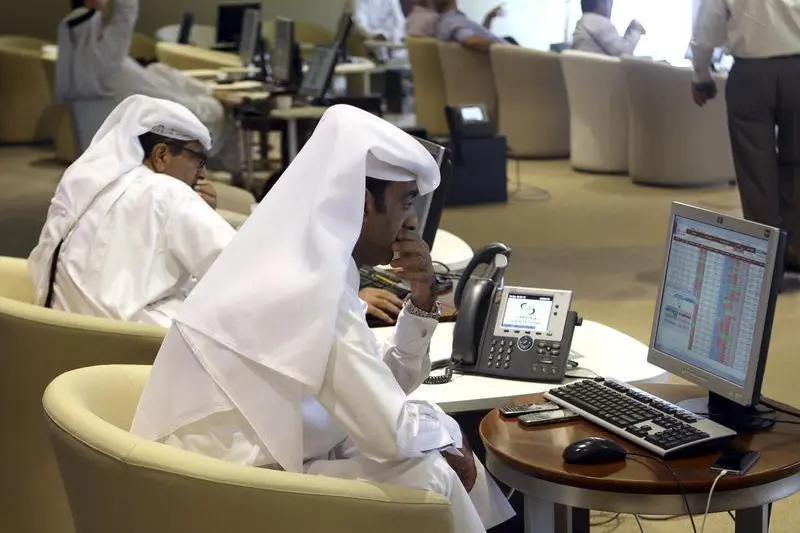PHOTO
02 October 2016
Doha - Qatar’s to rankings in terms of fiscal discipline, efficiency in public investment, and several other key areas of macroeconomic environment in World Economic Forum’s (WEF) latest Global Competitiveness Report, suggest that the country has lived up to the expectations of International Monetary Fund (IMF).
Although Qatar’s position globally in this year’s competitive report is 18th among 138 countries, it ranked first in the ‘Wastefulness of Government Spending’ as part of the “Institutions Pillar”, also the first rank in Government budget balance, gross national savings and inflation rates as part of the “macroeconomic environment pillar”.
IMF, the Washington-based international monetary organisation, had earlier recommended Qatar to strengthen its fiscal institutions, particularly with an integrated public investment management process, for improving its public investment efficiency.
In the Report 2016-17, prepared by the Geneva-based WEF, Qatar ranked second place in the Arab World after the UAE and ahead of Saudi Arabia which is ranked 29, Kuwait 38, France 21, Malaysia 25 and Austria 19. The WEF ranking is based on the methodology of the report which depends on 12 different pillars measuring different aspects of competitiveness such as Institutions, Macroeconomic Environment, innovation and others.
The Qatari Businessmen’s Association (QBA) along with Qatar University, specifically the Social and Economic Research institute (SESRI) have been the local strategic partners of WEF in Qatar, where throughout 11 consecutive years, QBA worked with WEF to highlight the strengths of the local economy, especially with respect to the investment climate and opportunities in all areas.
Where the two institutes had put massive efforts to distribute, follow up and collect the survey questionnaire, which is designed to capture a broad range of factors affecting the economy expressed by the views of the business community, and to deliver a comprehensive overview of the main strengths and weaknesses in the national economy. The report is an annual assessment of the factors driving productivity and prosperity in 138 countries. The degree to which economies are open to international trade in goods and services is directly linked to both economic growth and a nation’s innovative potential.
The trend, which is based on perception data from the Global Competitiveness Index (GCI)’s Executive Opinion Survey, is gradual and attributed mainly to a rise in non-tariff barriers although three other factors are also taken into account; burdensome customs procedures; rules affecting FDI and foreign ownership.
It is most keenly felt in the high and upper middle income economies.
“Declining openness in the global economy is harming competitiveness and making it harder for leaders to drive sustainable, inclusive growth,” said Klaus Schwab, Founder and Executive Chairman, WEF.
The report also offers insight into how priorities may be shifting for nations in earlier stages of development.
While basic drivers of competitiveness such as infrastructure, health, education and well-functioning markets will always be important, data in the GCI suggests that a nation’s performance in terms of technological readiness, business sophistication and innovation is now as important in driving competitiveness and growth.
Doha - Qatar’s to rankings in terms of fiscal discipline, efficiency in public investment, and several other key areas of macroeconomic environment in World Economic Forum’s (WEF) latest Global Competitiveness Report, suggest that the country has lived up to the expectations of International Monetary Fund (IMF).
Although Qatar’s position globally in this year’s competitive report is 18th among 138 countries, it ranked first in the ‘Wastefulness of Government Spending’ as part of the “Institutions Pillar”, also the first rank in Government budget balance, gross national savings and inflation rates as part of the “macroeconomic environment pillar”.
IMF, the Washington-based international monetary organisation, had earlier recommended Qatar to strengthen its fiscal institutions, particularly with an integrated public investment management process, for improving its public investment efficiency.
In the Report 2016-17, prepared by the Geneva-based WEF, Qatar ranked second place in the Arab World after the UAE and ahead of Saudi Arabia which is ranked 29, Kuwait 38, France 21, Malaysia 25 and Austria 19. The WEF ranking is based on the methodology of the report which depends on 12 different pillars measuring different aspects of competitiveness such as Institutions, Macroeconomic Environment, innovation and others.
The Qatari Businessmen’s Association (QBA) along with Qatar University, specifically the Social and Economic Research institute (SESRI) have been the local strategic partners of WEF in Qatar, where throughout 11 consecutive years, QBA worked with WEF to highlight the strengths of the local economy, especially with respect to the investment climate and opportunities in all areas.
Where the two institutes had put massive efforts to distribute, follow up and collect the survey questionnaire, which is designed to capture a broad range of factors affecting the economy expressed by the views of the business community, and to deliver a comprehensive overview of the main strengths and weaknesses in the national economy. The report is an annual assessment of the factors driving productivity and prosperity in 138 countries. The degree to which economies are open to international trade in goods and services is directly linked to both economic growth and a nation’s innovative potential.
The trend, which is based on perception data from the Global Competitiveness Index (GCI)’s Executive Opinion Survey, is gradual and attributed mainly to a rise in non-tariff barriers although three other factors are also taken into account; burdensome customs procedures; rules affecting FDI and foreign ownership.
It is most keenly felt in the high and upper middle income economies.
“Declining openness in the global economy is harming competitiveness and making it harder for leaders to drive sustainable, inclusive growth,” said Klaus Schwab, Founder and Executive Chairman, WEF.
The report also offers insight into how priorities may be shifting for nations in earlier stages of development.
While basic drivers of competitiveness such as infrastructure, health, education and well-functioning markets will always be important, data in the GCI suggests that a nation’s performance in terms of technological readiness, business sophistication and innovation is now as important in driving competitiveness and growth.
© The Peninsula 2016





















